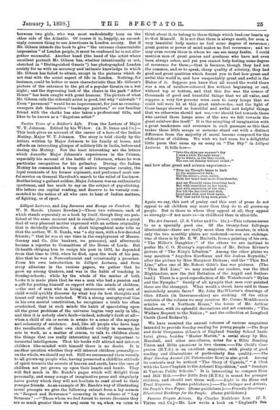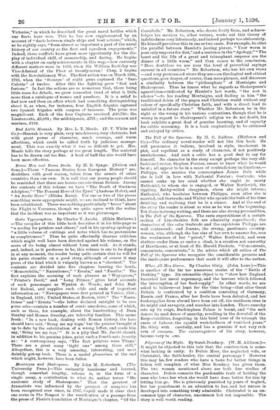Victories," in which he described the great naval battles which
our fleets have won. This he has now supplemented by an account of "duels between single ships and boat actions," which, BA he rightly says, "form almost as important a part of the naval history of our country as the fleet and squadron engagements." Indeed, these conflicts have given more opportunity for the dis- play of individual skill, of seamanship, and daring. He begins with a chapter on early achievements in this way,—how curiously different matters were in l6C6, when Sir William Berkeley was Vice-Admiral of the Fleet at twenty-seven ! Chap. 2 begins with the Revolutionary War. The first action was on March 13th, 1793, when the Scourge' of eight guns captured the Sans Culotte' of twelve. After this the fighting grew "fast and furious." In fact the actions are so numerous that, there being little room for details, we grow somewhat tired of what is little more than a catalogue of names and numbers. It is a relief to find now and then an affair which had something distinguishing about it, as when, for instance, four English frigates captured two Spanish frigates with cargoes of treasure. The prize was magnificent. Each of the four Captains received £40,730; the Lieutenants, £5,091; the midshipmen, £791; and the seamen and marines, 2182.











































 Previous page
Previous page